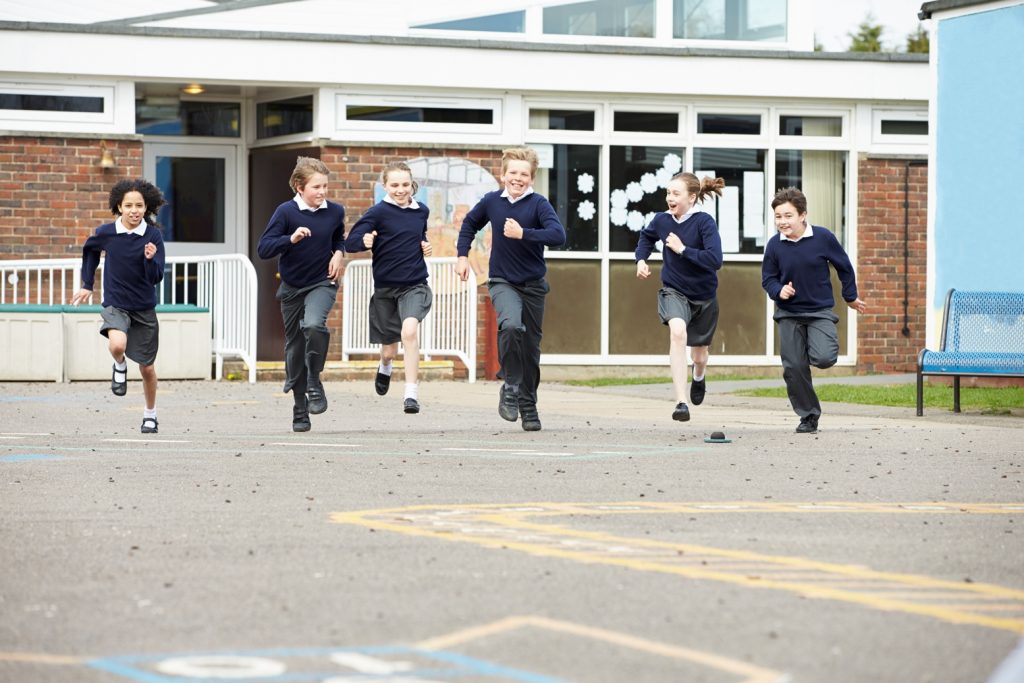With the academic year having drawn to a close, schools are often looking at ways of improving academic performance and productivity in the new Autumn Term. One strategy which has become popular is the practice of shortening pupil’s lunch breaks, in order to re-structure the school day.
This practice, however, has been shown to be detrimental to children physically, mentally, emotionally and academically. Consequently, when I received a letter from my children’s secondary school recently advising of its intention to do the same, and giving parents a deadline in which we could offer our feedback, I felt compelled to write a letter outlining my disapproval.
First and foremost pupils need a minimum of half an hour to chew their food thoroughly, in order to assimilate the nutrients consumed, and this factor is imperative, as digestion starts in the mouth with chewing. If this is hurried, digestion is adversely affected, curtailing nutritional absorption, which could result in deficiencies as well as heartburn or acid-reflux.
Where lunchtime has been reduced, pupils are less likely to eat a proper meal, opting instead to use their time joining in clubs or social activities. Those pupils purchasing a school meal often don’t have enough time to eat the ‘Meal of Day’, which in general is a healthier option, and will more commonly purchase snacks, such burgers or pizzas or bring in a packed lunch, all of which are often lower in nutritional status and higher in sugars.
Shorter lunch breaks have been shown to deter pupils from choosing fruit and vegetables, and to lead to qualifying children not taking up their free school meals. This is undesirable, because for some children this is their main meal, and maybe their only hot meal of the day.
“studies have found a direct link between diet and the ability of children to think and concentrate”
Children eating a healthy meal during the school day learn vital healthy eating habits in a broader spectrum, helping to reduce nutritional, weight or health issues in later life. Children with better health and wellbeing tend to be higher achievers academically, which also plays a pivotal role in their ability to reap the rewards of excellent teaching and reach their academic potential.
What is more, an unhealthy diet leaves children with a weakened immune system, making them susceptible to illnesses, resulting in increased absence from school and elevated days without teacher-pupil contact, and consequently decreasing academic achievement. Several studies have found a direct link between diet and the ability of children to think and concentrate, with some micronutrient deficiencies in particular having a detrimental effect on the development of the central nervous system and also cognitive function in later years. Diet has also been shown to have immediate effect on brain function.
Further stress is also caused by a shorter lunch break because it gives pupils insufficient time to relax or recover, and consequently they often return to lessons in the afternoon unable to focus on their studies. Staying alert and focussed throughout the day also depends on having adequate blood-glucose levels, which are necessary for optimal brain function and reducing blood-glucose variations throughout the school day. This cannot be done if children are hungry for hours and then consequently have to fill up on unhealthy snacks at break time, instead of having a balanced meal.
School food guidelines advocate sufficient time to eat a healthy lunch, in addition to allowing time to participate in clubs or activities, and the lunch break needs to be lengthened to achieve these goals.

A link has also been shown between shorter lunch breaks and an increase in sedentary behaviour in children, with 60 minutes of daily activity being recommended, including walking. Consequently a shorter lunch break will be a large set-back to any strategy for increasing physical activity amongst adolescents.
“Further stress is also caused by a a shorter lunch break because it gives pupils insufficient time to relax or recover”
What is more, the lunch break provides a social environment for children, where they can develop social skills, make valuable friendships and network with their peers, in activities that they have organised for themselves. This interaction at school is often undervalued, but it is an important part of adolescent development and gives them free time with their friends, without direct supervision, in a safe environment.
A very large majority of pupils have positive views on break time and appreciate the social connection and opportunity that it gives them. These times are crucial for social development, because we are living in an era where adolescents’ movement is being restricted because of safety concerns, subjecting them to increased adult control at most times and reducing the quality time they have for social interaction with their peers.
These social situations give adolescents opportunities to be adventurous, in particular in an emotional context, to control these emotions and to experiment with new ways of collaborating with each other. Subsequently lunch times provide an opportunity for pupils to evolve socially, enabling them to develop their coping and communication skills, and to share, negotiate and manage conflicts.
Although to the adult eye they appear to be only dawdling around, these times are crucial for their emotional and social development. This importance is increased by the fact that a large percentage of pupils do not have an opportunity to see their friends outside school. The increasingly insufficient opportunities for free time outside school are thought to be a large contributor to children’s impaired mental health.
Taking all these factors into consideration, lunchtimes are one of the rare opportunities available for children to interact with their peers in a safe environment, without domination from adults, classroom or home restrictions, and without interruptions from mobiles and ipads.
Taking all these factors into account, and with the incidence of child obesity doubling worldwide, to shorten school lunch breaks goes against the goals set for children and adolescents to promote healthy eating, increase physical activity, reduce obesity and improve mental wellbeing.
As parents, we need to communicate our concerns to our children’s schools, in order to be a voice for their future.

About Özlem Aytaç S.A.C, Dip (s). M.F.N.T.P
Özlem is a UK qualified Nutrition and Weight Management Practitioner. She creates bespoke and personalised nutritional programmes and provides stage-by-stage support, mentoring, motivating and empowering clients to fulfil their health goals. She also serves as a nutritional consultant in areas such as menu planning and menu analysis, as well as offering corporate consultancy and talks.





